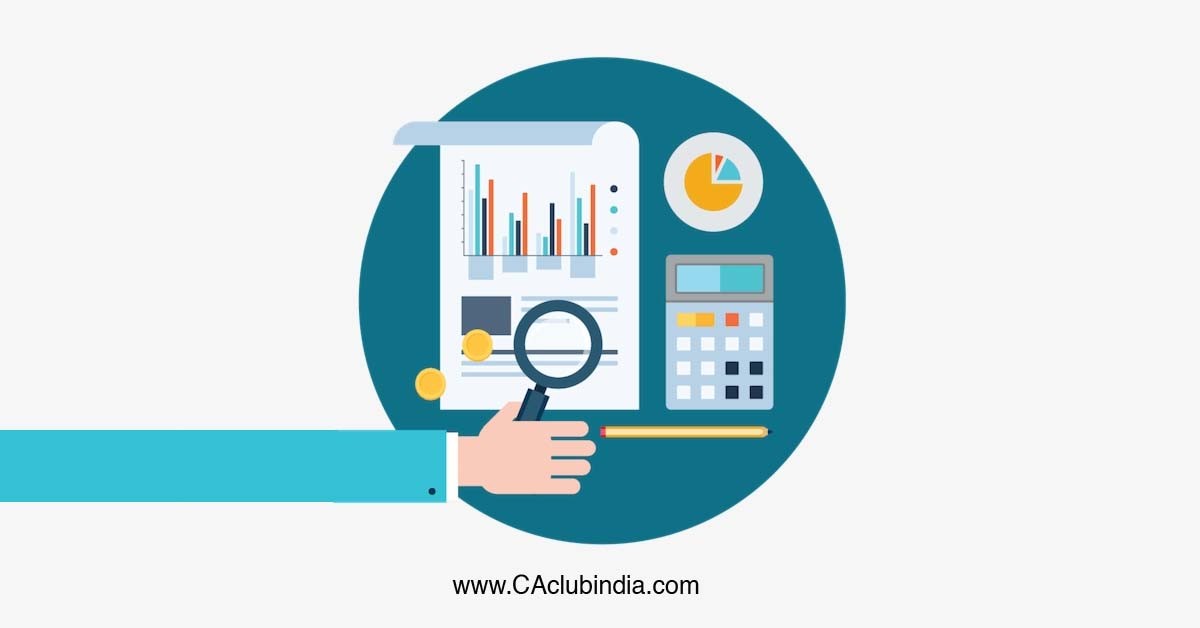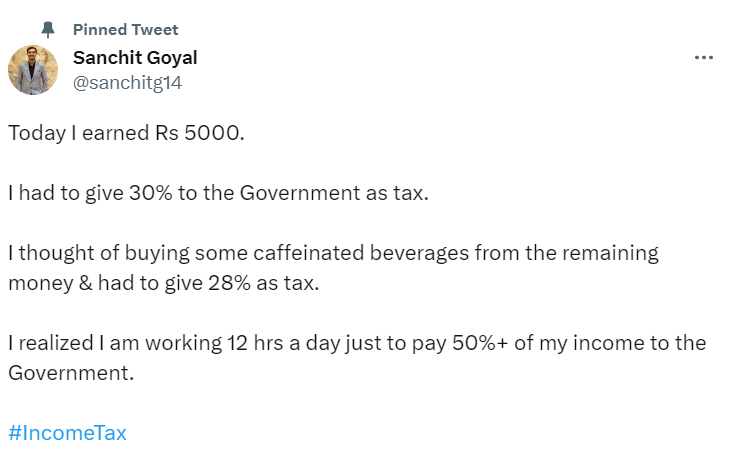A Bengaluru-based e-commerce employee recently took to Twitter to vent his frustration about the high taxes he pays on his earnings and spendings. In a series of tweets, the employee, identified as Sanchit Goyal, said that he earns Rs 5,000 per day and has to pay 30% of that in taxes. He then went on to say that he had to pay an additional 28% tax when he bought caffeinated beverages from his remaining income. This, he said, meant that he was effectively paying more than 50% of his income in taxes.
Goyal's tweets quickly went viral, with many people expressing their sympathy and agreement. Some Twitter users pointed out that the high taxes in India make it difficult for people to save money and invest in their future. Others said that the government should do more to reduce the tax burden on its citizens.
The issue of high taxes in India is a complex one. There are a number of factors that contribute to the high tax rates, including the country's large population and its relatively low per capita income. However, there is also a perception that the government does not always use tax revenue efficiently.

Goyal's tweets have sparked a debate about the issue of taxes in India. It remains to be seen whether the government will take any action to address the concerns raised by Goyal and others.

Here are some of the reactions to Goyal's tweets
- "I feel your pain, bro. I pay more than 50% of my income in taxes too."
- "The government needs to do more to reduce the tax burden on its citizens."
- "The high taxes in India make it difficult to save money and invest in our future."
- "I'm glad you're speaking out about this issue. It's something that needs to be addressed."
It is clear that Goyal's tweets have struck a chord with many people in India. The high taxes in the country are a major concern for many people, and Goyal's tweets have helped to raise awareness of this issue. It remains to be seen whether the government will take any action to address the concerns raised by Goyal and others, but his tweets have certainly sparked a much-needed debate about taxes in India.





 CAclubindia
CAclubindia
